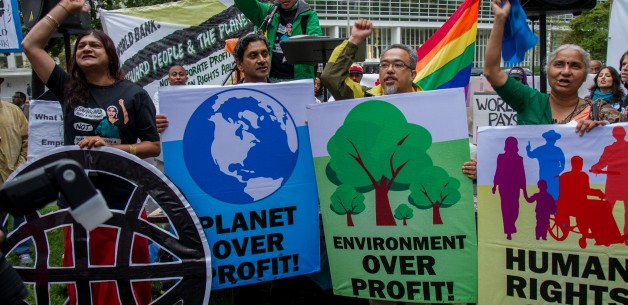While the recent election has cast a shadow of uncertainty over the future role of the United States in multilateral organizations such as the World Bank, it is worth reflecting on the progress that has been made at this institution and across the development finance landscape because of the leadership of the United States. The next few blog posts will be devoted to highlighting specific efforts that are most emblematic of the U.S. government legacy in development finance reform.
For the last few decades, the United States has played an active role in the reform of international development finance, with a particular focus on enhancing the transparency and accountability of multilateral development banks (MDBs). The foundation for this work was laid with the passage of the Pelosi Amendment in 1989. An unlikely effort led by the first term Congresswoman from California, the Pelosi Amendment helped to crack open the opaque and inaccessible development finance institutions, providing an invaluable platform for poor and marginalized communities to have their voices heard, and spurring a major reform movement that it continues to sustain today.
The Pelosi Amendment reflected a growing concern in the late 1980s that the MDBs were promoting a destructive and unsustainable development model. Large infrastructure projects were being financed that ignored the needs and interests of the people on the ground, at times causing severe harm—from extensive deforestation in the Amazon to massive forced displacement in India. The World Bank in particular was a powerful and enigmatic organization that appeared accountable to no one, least of all the poorest and most marginalized that often bore the brunt of the risks of development.
 The Pelosi Amendment sought to address the power imbalance at the MDBs by conditioning U.S. support for their projects on whether affected communities had an opportunity to understand and participate in the development process—effectively curbing the power of the largest shareholder to back development projects that did not have the support of local communities. Placing such a requirement on the most influential member of the MDBs had a transformational ripple effect across the development finance landscape as one bank after another adopted mandatory policies that reflected the restrictions the U.S. had placed on itself.
The Pelosi Amendment sought to address the power imbalance at the MDBs by conditioning U.S. support for their projects on whether affected communities had an opportunity to understand and participate in the development process—effectively curbing the power of the largest shareholder to back development projects that did not have the support of local communities. Placing such a requirement on the most influential member of the MDBs had a transformational ripple effect across the development finance landscape as one bank after another adopted mandatory policies that reflected the restrictions the U.S. had placed on itself.
Countless civil society organizations from around the world are now involved in advocating for development finance reform, often relying on Pelosi Amendment protections that serve to even the playing field for voices that would otherwise go unheard. From large environmental and human rights organizations based in the United States and Europe to single activists in countries where speaking out against powerful interests can be fatal, people can access the highest levels of the World Bank and other MDBs to raise concerns about the harmful impacts of development because of those protections.
 Projects financed by the MDBs today are still not perfect—people continue to be excluded from participating in development decisions that profoundly impact their lives, and harm continues to occur to those the institutions are supposed to serve. However, the Pelosi Amendment provides a crucial foot in the door for communities to assert their rights. Even the World Bank’s recent efforts to reform its social and environmental safeguards, which many fear will roll back hard won protections for affected communities, maintained key provisions derived from Pelosi. Its legacy is an important example of the positive role the United States can and should play in multilateral institutions by using restraint as well as strength to promote a sustainable and equitable development model that promotes the rights of all people to determine their futures.
Projects financed by the MDBs today are still not perfect—people continue to be excluded from participating in development decisions that profoundly impact their lives, and harm continues to occur to those the institutions are supposed to serve. However, the Pelosi Amendment provides a crucial foot in the door for communities to assert their rights. Even the World Bank’s recent efforts to reform its social and environmental safeguards, which many fear will roll back hard won protections for affected communities, maintained key provisions derived from Pelosi. Its legacy is an important example of the positive role the United States can and should play in multilateral institutions by using restraint as well as strength to promote a sustainable and equitable development model that promotes the rights of all people to determine their futures.

